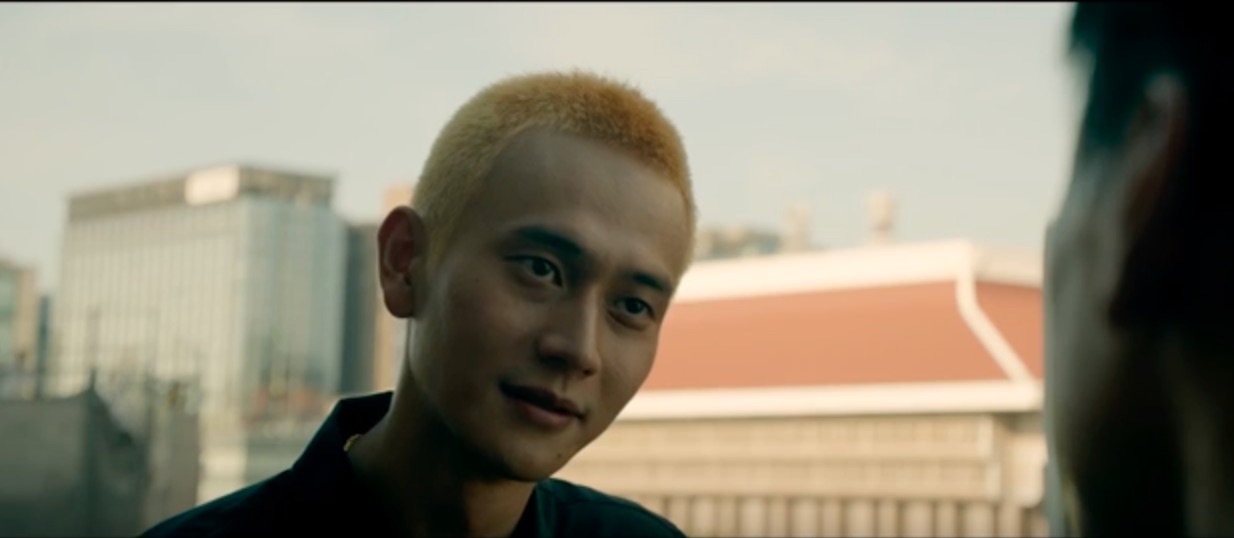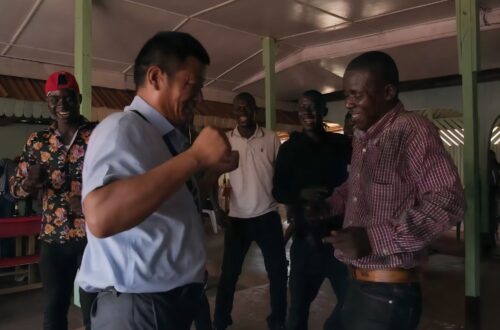‘A Sun’: Golden Horse winner is a subtle drama about a broken family

Now available on Netflix, A Sun is a weighty Taiwanese crime-drama filled with shocking violence and repressed emotion. Ultimately, it’ll have you rooting for a family that isn’t immediately likable.

Although there was no shortage of talent, the Golden Horse Awards last November was emptier than usual. The Taiwanese award ceremony is supposed to honor Chinese-language film, but mainland contenders and filmmakers were noticeably absent. Back at the 2018 show, China cut its broadcasts after award-winning director Fu Yue (傅榆 Fù Yú) made a comment about Taiwanese independence. In retaliation, the Chinese government boycotted the 2019 Golden Horse Awards, even leading some Hong Kong filmmakers to drop out.
It’s unfortunate that political controversy had to sour the ceremony, but it was still an interesting year. The Hong Kong-made Suk Suk (叔·叔 shū·shū), a drama about two gay elderly men, received five nominations, while the White Terror-era horror movie Detention (返校 fǎn xiào) took home awards in five categories.
The most decorated movie of the season, however, was Taiwan’s own A Sun (阳光普照 yángguāng pǔzhào), which took six awards.
Director Chung Mong-hong (钟孟宏 Zhōng Mènghóng) — also the cinematographer and co-producer on the darkly offbeat The Great Buddha+ (大佛普拉 dàfú pǔ lā) — said afterwards, “I am very happy…although the movies I made haven’t made any profit.” Whatever its domestic box office success, A Sun has made its way to Netflix, where it’s been recently available to stream in the U.S. While its slow pacing and long runtime might put off some viewers, A Sun is a gripping crime-drama deserving all the acclaim it garnered at the Golden Horse Awards.
Its opening scene is a shocking bout of violence. Hoodlums Chen A-ho and Radish have a bone to pick with another young ne’er-do-well, Oden. After riding on a stolen motorcycle in the rain, they find their rival in a restaurant. To the tune of the movie’s gentle original score, Radish walks in with a machete and hacks Oden’s hand off. The limb drops into a bowl of soup, and Oden is left screaming on the floor, shaking in his own blood.
After the men are caught, Radish is given a tough sentence, while A-ho makes it off with a shorter stint in juvie. The episode strains the already dysfunctional Chen family, which is struggling to get by. In the first half of the film, each of the four Chens are carefully sketched.
Father A-wen is a bitter driving instructor who’s constantly chanting his motto, “Seize the day, decide your path” to his family and students. He’s ashamed and resentful toward A-Ho, yet has nothing but pride for his other son, A-hao. The older boy is smart and good-looking, but tends to keep to himself. The Chens’ mother, Qin, is more forgiving of A-ho. When a woman pops up on the Chens’ doorstep with a teenage girl, the visitor tells Qin that her niece is pregnant, and A-ho is the father. To A-wen’s disapproval, Qin agrees to take in the girl, Xiao Yu. Even when A-ho is locked up, the Chens are stuck cleaning up after him.
What might mark the family’s breaking point comes in the middle of the film, as the Chens are shaken by an unexpected tragedy. The second half of the film, consequently, is much darker. Three years have passed. Qin has opened a beauty parlor, and A-ho is out of jail, working at a car wash to support his new wife and kid. He tries his best to stay straight, even as society shuns him and his own father is indifferent. As A-ho is being pushed back into crime by his pal Radish, however, A-wen is eventually forced to confront his failure to support his son.
There’s a lot going on in A Sun, and as a story of repressed emotions, it chooses subtlety over melodrama. There are stretched-out scenes, enigmatic conversations, and quiet lingering shots, inviting the viewer to infer or piece together what’s really happening under the surface. This ambiguity contributes to the movie’s dramatic weight, yet it can also be frustrating. As the focus shifts to A-wen and A-ho in the second half, there are other characters and points that fall to the wayside. Xiao Yu appears only once during this sequence, for example, and her relationship with A-Ho feels undeveloped. What did she see in someone like A-ho? What is their dynamic as a family, especially compared to A-wen and his clan?
Despite being two-and-a-half hours long — still an hour shorter than The Irishman — A Sun is so compelling that I wish these and other pieces could have been elaborated on a bit more. Even so, the movie excels in sinking our hearts into a family that isn’t immediately likable. Its slow pacing comes out of an attention to detail, an effort to make its characters understood. Is A-ho truly “bad,” and is A-hao as happy as his father thinks that he is? There’s more to the Chens than meets the eye; by the end, we realize they’re not the people we thought they would be.
Film Friday is The China Project’s film recommendation column. Have a recommendation? Get in touch: editors@thechinaproject.com





